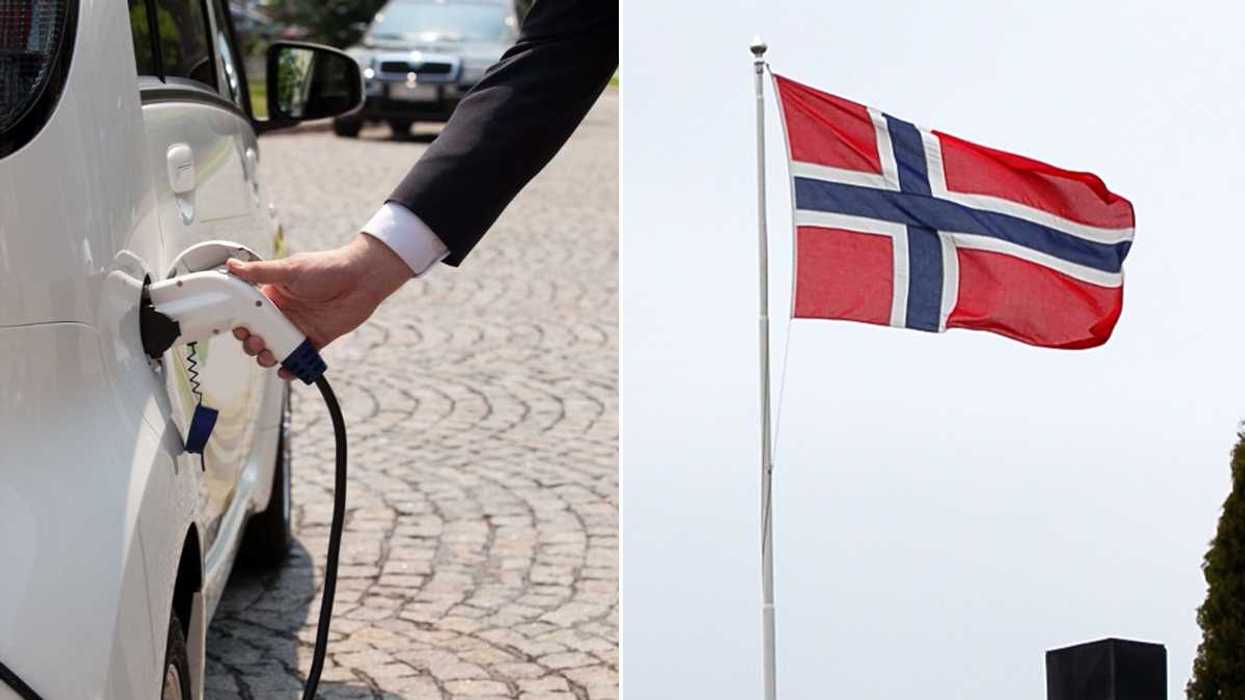These last four years have been drenched in a divisive moral fog that is as ubiquitous as it is mercurial - we live in a poorly written episode of the Twilight Zone where Nazis roam the streets, mature leadership is but a memory, and our collective sanity is held to ransom by technocratic warlords.
So what does it say about our current moment that a film created in 1943, before the civil Rights movement, before the dawn of the modern progressive politics, is still just as prescriptive as any modern wisdom?
"Don't Be a Sucker", an educational film created by the United States Department of War, is a stark reminder that we as a free democratic people have had the quickened hearts of anti-racism and anti-fascism since long before a victory over Nazi Germany was assured in 1945.
The film follows, "An American Freemason who has been listening to a racist and bigoted rabble-rouser, who is preaching hate speech against ethnic and religious minorities and immigrants, is warned off by a naturalized Hungarian immigrant, a Holocaust survivor, who explains to him how such rhetoric and demagoguery allowed the Nazis to rise to power in Weimar Germany, and warns Americans not to fall for similar demagoguery propagated by American racists and bigots."
"Don't Be a Sucker" outlines the freedoms that were being fought for, and the character of a democratic people saying that America thrives because it is filled with, "Free people. They can live together and work together and build America together because they're free. Free to vote, to say what they please, to go to their own churches and to choose their own jobs…"
This muscular democratic vision also captures the very core of what makes the United States the place of profound vision that foreigners Thomas Paine and Alexis De Tocqueville wrote of so powerfully. A nation that finds strength in its diverse citizenry, a nation that leads by example and virtue, not fear mongering and disinformation. A nation that knows itself, and through that self knowledge is not shaken by the tides of fortune, but welcomes each new challenge as a horizon yet to be ventured into.
Trust in each other is the vital element that holds all democratic peoples in the right - but where trust is eroded, fear enters. Where fear abides, hate follows - and when hatred seeps into the heart of an electorate, there can be no forward motion until the poison is drawn from the wound.
So as we enter this uncertain stage of the democratic experiment, it can be heartening to remind ourselves of the rough, hopeful and clear roots from which the tree of liberty draws its identity.
Quite frankly, if the quarrel is between draft dodgers, spouting bigotry and living in fear of their fellow man — and those who stormed the beaches in Normandy in the name of this freedom - I'd say the choice is clear.
Watch the film here.
















 A parking lot for charging electric vehicles.Photo credit
A parking lot for charging electric vehicles.Photo credit  Oil production.Photo credit
Oil production.Photo credit  Sun shines over the Earth.Photo credit
Sun shines over the Earth.Photo credit 
 Counterintuitively, social media can make you feel more bored and lonely.
Counterintuitively, social media can make you feel more bored and lonely. Talking about what you’ve read can add a social dimension to what can be a solitary activity.
Talking about what you’ve read can add a social dimension to what can be a solitary activity. 
 A flight attendant closes the overhead binCanva
A flight attendant closes the overhead binCanva Gif of Larry David trying to put his luggage in overhead compartment via
Gif of Larry David trying to put his luggage in overhead compartment via 
 Dog owner pets their dogCanva
Dog owner pets their dogCanva Gif of a sad looking pug via
Gif of a sad looking pug via 

 Volunteer work.Photo credit
Volunteer work.Photo credit  Putting the puzzle together.Photo credit
Putting the puzzle together.Photo credit  Woman and her equations.Photo credit
Woman and her equations.Photo credit  A colorful mind.Photo credit
A colorful mind.Photo credit  A happy business team.Photo credit
A happy business team.Photo credit 

 A happy entrepreneur at workCanva
A happy entrepreneur at workCanva